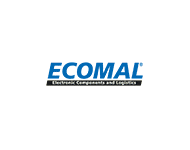RoHS |
Lead-Free Compatibles SMAs
Henkel's Chipbonder designed to address the elevated temperatures of lead-free soldering processes.
Following a period of extensive lead-free evaluation trials, the electronics group of Henkel has revealed that selected Loctite® Chipbonders® are not only capable of running lead-free, but are designed to optimise lead-free processes, eliminating chip loss and saving components by low temperature curing systems. The trials involved testing a range of Loctite Chipbonder adhesives on 'difficult to bond' components. Using Loctite Chipbonder test boards, the trials employed both lead-free and tin-lead dual wave solder machines using a range of Multicore® fluxes. The results proved that Chipbonders 3609, 3616, 3621, 3627 and 3629 are optimised for lead-free compatibility.
The elevated temperatures of lead-free wave soldering processes reduce the mechanical strength of adhesives. In order to overcome poor hole fill and wetting, the contact time on the solder wave is often increased and the wave shape more turbulent. This has an additional impact on the adhesive's performance. Especially where non VOC-free, means alcohol-based fluxes, are in use the chemical resistance of adhesives used in lead-free processes needs to be significantly higher.
“With the deadline to Go-Lead-free now less than 9 months away, manufacturers around the world are currently optimising their processes for effective operation in these conditions,” comments Matthias Brachmann, Application Engineer Europe, Henkel. “Lead-free is already having a significant impact on a range of materials, including Surface Mount Adhesives (SMA). Ultimately, SMAs need to be able to withstand considerably greater levels of thermal and chemical stress in order to prevent chip loss and component movement. Following Henkel's recent lead-free evaluation trials, the Loctite Chipbonder range is currently being well received by manufacturers managing the transition to lead-free, whilst seeking to maintain optimal high speed assembly processes.”
The results of the recent trials showed that Loctite 3609 is ideal for use in general purpose high speed dispensing, boasting a high wet strength and long machine on stencil life. Loctite 3616 was proven to be primed for high speed printing, whilst Loctite 3621 was revealed as being the top-of-the-range choice for dispense jetting. Meanwhile, Loctite 3629 low temperature cure SMA for dispensing and ProFlow printing was shown to reduce manufacturing costs by curing at 120°C instead of 150°C and saving temperature sensitive components at the same time. An additional feature is that Loctite 3629 turns fluorescent when uncured for cure visibility. “In combination, the lead-free compatible Loctite Chipbonder range presents Henkel customers with Surface Mount Adhesives for every manufacturing environment,” concludes Matthias Brachmann.






